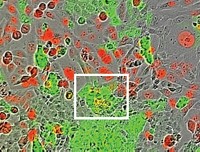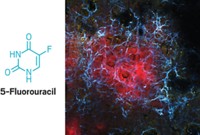Advertisement
Grab your lab coat. Let's get started
Welcome!
Welcome!
Create an account below to get 6 C&EN articles per month, receive newsletters and more - all free.
It seems this is your first time logging in online. Please enter the following information to continue.
As an ACS member you automatically get access to this site. All we need is few more details to create your reading experience.
Not you? Sign in with a different account.
Not you? Sign in with a different account.
ERROR 1
ERROR 1
ERROR 2
ERROR 2
ERROR 2
ERROR 2
ERROR 2
Password and Confirm password must match.
If you have an ACS member number, please enter it here so we can link this account to your membership. (optional)
ERROR 2
ACS values your privacy. By submitting your information, you are gaining access to C&EN and subscribing to our weekly newsletter. We use the information you provide to make your reading experience better, and we will never sell your data to third party members.
Biological Chemistry
Marine Toxin Derivative Kills Undifferentiated Stem Cells
Natural Products: A molecule that selectively kills human pluripotent stem cells could lead to safer stem cell transplants
by Melissae Fellet
July 15, 2014

In proposed stem cell therapies, researchers would coax pluripotent stem cells to begin differentiating into specific types of cells and then transplant them into patients. However, some pluripotent cells could remain in the transplant mixture, possibly leading to tumor formation. Now, researchers have identified a molecule that selectively kills pluripotent stem cells without harming most differentiated cells (J. Am. Chem. Soc. 2014, DOI: 10.1021/ja501795c). The molecule, a derivative of a marine toxin, could be used to make stem cell transplants safer, the researchers say.
Earlier this year, Motonari Uesugi of Kyoto University, in Japan, and his colleagues reported a fluorescent molecule that stained human pluripotent stem cells but not differentiated cells (Cell Rep. 2014, DOI: 10.1016/j.celrep.2014.02.006). The reason for this selectivity lay in three transporters that export molecules out of cells. Two of the proteins transport the dye, and one does not. The researchers found that differentiated cells express more of the first two transporters than pluripotent cells do. Therefore, pluripotent cells trap the dye inside whereas differentiated cells eject it.
The researchers wanted to exploit this expression difference to find a molecule that kills pluripotent cells instead of staining them. They screened 333 cytotoxic compounds, looking for ones that would get ejected by the two transporters that predominate on differentiated cells but not by the third transporter. The best candidate from that screen was a derivative of the marine toxin okadaic acid.
To test the molecule’s selective toxicity, the researchers added it to a mixture of pluripotent and partially differentiated cells. After 48 hours, they found only differentiated cells in the treated mixture but both pluripotent and differentiated ones in the untreated mixture.
Uesugi notes, however, that the molecule needs optimization: It kills neurons as well as pluripotent stem cells.





Join the conversation
Contact the reporter
Submit a Letter to the Editor for publication
Engage with us on Twitter